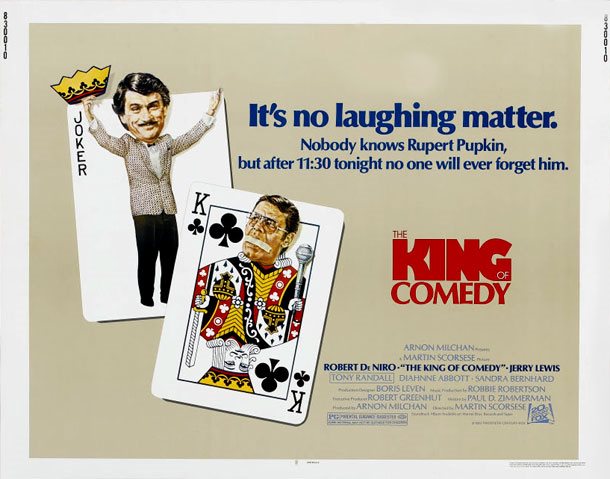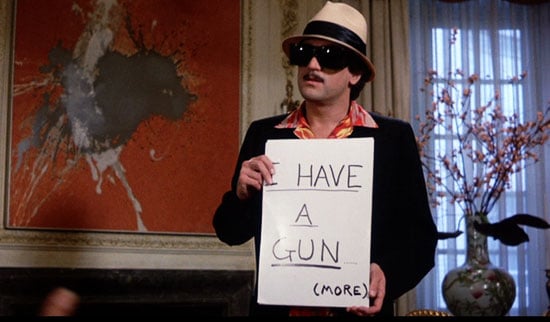The King of Comedy

Please note the purpose of this blog is to discuss established classics that I've never seen. As such, the following is laden with spoilers.
Why So Long?
Although it has undergone something of a revival in the last few years, it's worth remembering that this was, for a long time, thought of as the weakest of the De Niro and Scorsese films. This one, unlike Raging Bull, Taxi Driver or even Casino was not one you seen regularly popping up in late-night slots on Channel Four, nor was it even easy to find in your local Virgin Megastore (and I should know, I worked in one). Despite starring De Niro, in terms of accessibility, it might as well have been Who's That Knocking at my Door?. With early word on Todd Philips' Joker claiming this as a massive influence, it seemed like the ideal time to stick it on.
And?
Maybe this film was just too ahead of its time. Maybe De Niro saw enough of Pupkin in his own fans and saw the way the world was going and maybe the viewing public just wasn't ready for it yet. Films will unexpectedly flop commercially all the time but I can't fathom why this was so roundly rejected by critics upon its release.
As an antagonist, Pupkin is a truly terrifying creation, perhaps more so now in this post #metoo society, where we're more acutely aware of the threat of "nice guys". The sheer understated but relentless threat he possesses is accented beautifully throughout the film by Sandra Bernhard's Masha. Masha, a seemingly more obvious, more unhinged physical threat ultimately shown to be, by comparison anyway, relatively harmless.

Films about unhinged fans are, at this point anyway, ten a penny. There's even a dreadful looking number coming out directed by Fred Durst of all people. There will be exceptions but most of them, when the opportunity is afforded, go darker. Not that this is necessarily a bad thing, Misery was and remains, a cracking film. The power in The King of Comedy lies in how understated it remains throughout, even its grand reveal; we finally get to see Pupkin's act and it is simply frustrating in its mediocrity. Were it not for the fact that he's a fictional creation, one could easily see him landing a regular slot on some panel show on Dave. Rather than juxtapose his revealed mediocrity with Pupkin lashing out, or some grand backlash from an unappreciative audience, we're instead led to question how much of this is real and how much of it remains, like so much of the film, completely in Pupkin's mind. The King of Comedy offers up no decisive answer as, despite its simple style, it is far from a simple message.
Will You be Watching it Again?
Undoubtedly; although it has nothing, in my mind, to rival the sheer power of Raging Bull, nor the outright entertainment of Goodfellas, this does now have to rank as one of my favourite Scorsese films. Pupkin, and indeed the film as a whole, embody a less initially obvious threat than other Scorsese protagonists (Travis Bickle being the obvious example). I always find that these characters haunt me for longer, Pupkin isn't dangerous in an obvious way and as such his threat is harder to dismiss - on more than one occasion I was reminded of Paul and Peter, the main protagonists from Michael Haneke's Funny Games; two other terrifying creations, relentless only through the power of their own take on what it means to be civil.
Has Any Light Been Shone on Some Heretofore Unknown Bit of Pop Culture?
Sadly not, this film must really have flopped on initial release as I can't even think of a Simpsons scene that references it.

Comments
Post a Comment